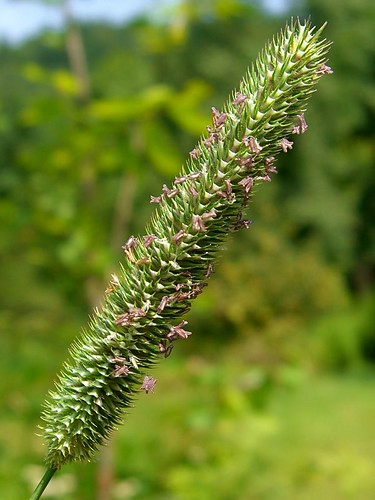Timothy, the San Antonio Zoo’s Star Hippo, Now Has His Own Poop-Scented Candle
Timothy #Timothy

Ah, February in South Texas, when a young man’s fancy lightly turns to thoughts of love! They preen, they sing, they . . . fling poop?
It might not sound romantic to you, but it’s the peak of debonair deportment if you’re a hippo, like the San Antonio Zoo’s Timothy. It turns out male hippos literally aim to spread the love, attracting mates by windmilling feces around with their tails. The behavior is a little bit like a teenage boy dousing himself in Axe body spray before heading to the prom. Now that Timothy is a young adult, at almost nine years old, his keepers say he’s been perfecting his slinging skills, and he’s lent his, um, signature scent to the zoo’s latest fundraiser: a poop-scented Hippo Love Candle, on sale now for $14.99.
This isn’t the first creative Valentine’s Day stunt from the San Antonio Zoo. Each year since 2020, it’s made headlines for Cry Me a Cockroach, in which the zoo will symbolically name either vermin or vegetable after your ex to “help squash your past” as they feed it to one of the animals. The fundraiser has brought in more than $300,000, including from fans in Japan, Norway, and Australia, according to Cyle Perez, the zoo’s director of public relations.
This year, the zoo has gone even further by billing itself the Valentine’s Capital of the World. It aims to offer something for everyone, whether you’re happily paired up, recently single, or on the prowl. In addition to the cockroach feast, there are two guided tours with a zookeeper who will educate attendees about animal courtship: the all-ages Valentine’s Twilight Tour and the more risqué, adults-only Naughty by Nature Tour. Those who are single and ready to flamingle can even Meet Your Next Ex at the zoo’s speed dating event.
Back to Timothy the hippo, though. If any 3,800-pound mammal is ready to have his own candle, it’s him. The centerpiece of the zoo’s Instagram page, he’s gone nationally and internationally viral several times, for reasons ranging from his romantic correspondence with Cincinnati’s Fiona the hippo to his truly balletic dolphin impression and his youthfully exuberant zoomies upon being fed extra lettuce. Even his napping skills are famous. As Timothy snoozes serenely underwater, tiny bubbles rising delicately from his nose, his own team of dermatolo-fish nibble on his back, helping to keep him clean. If you keep your eyes peeled, you’re sure to catch glimpses of his best friend and permanent snack-time shadow, Kevin the duck.
His most famous antic? Smashing pumpkins, says Jacob Downing, the zoo’s social media coordinator and resident Timothy expert. Although the keepers never share physical space with the hippos, Downing says they have a close relationship, and voluntary enrichment activities like crushing giant produce or making noseprints help ensure the animals are accustomed enough to human interaction that they can participate in veterinary care when needed.
As for the candle’s scent, the zoo was kind enough to let Texas Monthly get a whiff—and it’s not as unpleasant as you might imagine. If you’ve spent any time around a horse, you’ll know that herbivore dung is mostly undigested plants, with a milder smell than your resident carnivore’s litter box, at least when it’s fresh. Open the metal lid with its pink Timothy label, and at first there’s a sweet, herbal note reminiscent of ylang-ylang or honeysuckle. Then, a heart of green hay followed by a deep, musky undertone. When lit, it really has that new-farm smell.
Perez says this little bit of lowbrow humor has a higher purpose. Proceeds from the candle and the other zany Valentine’s fundraisers go to support work such as the zoo’s efforts to reintroduce the endangered Texas horned lizard (a.k.a. horny toad) to the wild, to breed giraffes, and to revamp the gorilla habitat. Cheeky campaigns such as the Hippo Love Candle, Perez says, “are our opportunity to get outside of our walls, outside of San Antonio, and even outside the state, to further our mission of securing a future for wildlife.”